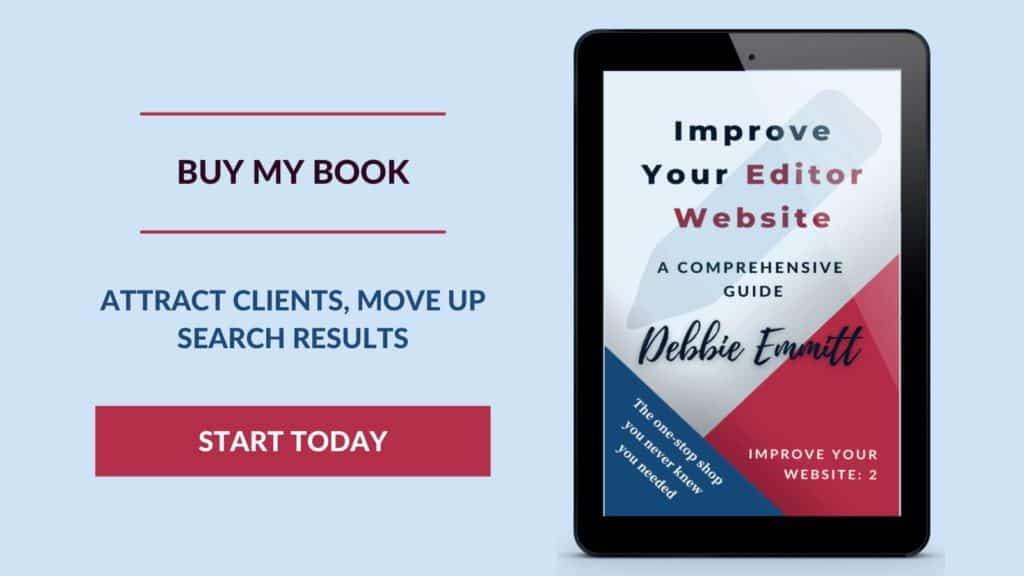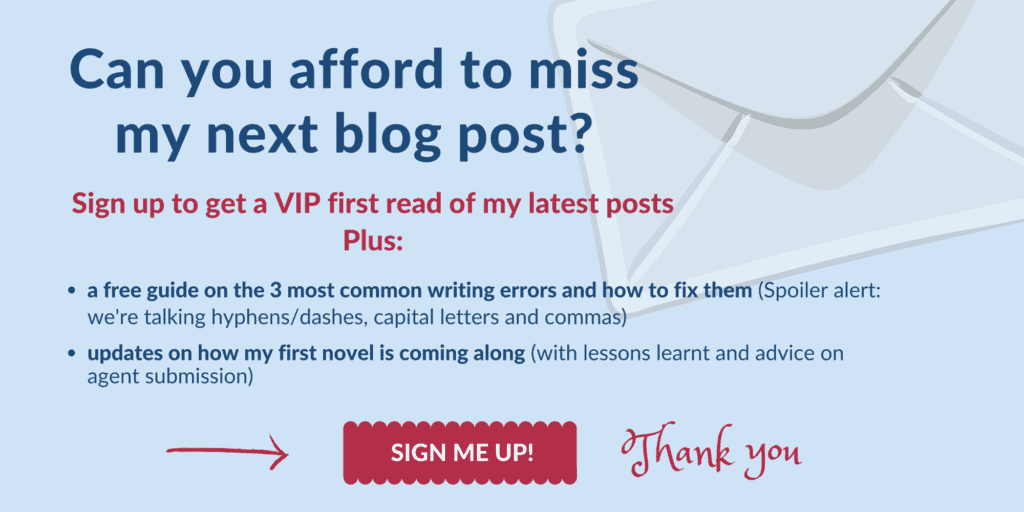
Upwork can be a great place to start out (and continue) for editors and proofreaders, but many struggle to make it work for them. Here’s how I do it.
First up, no links in this article are affiliate links. This is an honest account of Upwork from my experience and I stand to make no financial gain as a result of writing it.
For the first couple of years after becoming a freelance editor, 90% of my work came from Upwork. Now, excluding regular clients that I met on there, I’d say around 10%–20% of my editing work comes from Upwork, the rest being from repeat clients, LinkedIn and my website.
What is Upwork?
Upwork is a website where freelancers can find work. It is a marketing platform, job search site, communication tool and payment system all rolled into one. Clients post jobs on there and wait for freelancers to apply, and/or invite them directly to apply for the job.
You can set up a detailed profile to advertise your editing and proofreading services. Once you have some jobs under your belt, your profile will also show previous clients’ reviews, which will attract future clients.
Pros and cons of Upwork for editors
Pros
- It’s a one-stop shop for marketing, job searching, communicating with clients and receiving payment.
- You can get work in two ways: sending a proposal for one of the many editing jobs available, or receiving an ‘invitation to interview’ from a client.
- All communication (messaging, audio/video calling, file-sharing) with clients can be done on the platform; there is no need to share personal information if you don’t want to.
- Payment is handled completely within the platform, saving time in preparing quotes and invoices, and drastically reducing the risk of not being paid.
- You can be paid either by the hour or by the job, and there is a handy time-tracker tool.
- You can withdraw funds as soon as they become available ($0.99 fee per withdrawal), or set up a regular payment, e.g. monthly.
Cons
- Upwork charges a fee per job. This is 20% up to the first $500 per client, then it drops to 10% until $10,000, after which it is just 5%. While 20% is steep, if you find repeat clients, or jobs that are over $500 (a full-length book edit, for example), you can quickly get to the 10% fee. In my opinion, this is more than worth the time saved invoicing, finding work etc.
- There are some scams on the platform. I’ve never fallen prey to one, but I’ve heard they exist. Make sure the client’s payment method is verified and trust your gut instinct.
- If you want to take a client relationship off Upwork before two years, there is a conversion fee. After this time, you pay just $1. This isn’t a downside for me personally, as I keep all my Upwork clients on Upwork, but it may be a consideration for you.

Be a successful editor on Upwork
Based on my extensive experience using Upwork for editing and proofreading jobs, here are my top tips:
Show clients your face
I have a mugshot and video on my profile, so clients can see I’m a real person and how I can help them. Make it about them (No. 1 rule of marketing!)
No. 1 rule of marketing: Make it about THEM – Upwork for editors and proofreaders Share on XSet up a specialist profile
I have a General profile and a specific Editing and Proofreading profile. I apply for editing jobs using my specific profile, but clients can click on my General profile if they want to find out more about me.
Make the most of your heading
Make sure your profile heading and first line or two are eye-catching and tell the client why they should hire you. This is the text that appears in search results. This advice also goes for LinkedIn and other networking sites.
Write for the web
Follow ‘writing for the web’ guidance when writing your profile – break up text with headings, paragraphs, bulleted lists etc.
Put the important stuff at the top: credentials, an overview of what you do, then go into detail below.
Use language that tells the client how you can help them. Why should they hire you? What can you offer that others can’t?
Be clear about the levels of editing that you offer.
Gain reviews
In the beginning, I went for slightly lower-paid jobs to get a few 5-star testimonials on my profile (BUT ignore the really low-paid jobs). Social proof is everything. If you have no reviews on your profile, you’ll find it hard to get clients.
When you apply for these first jobs, explain that you’ve just joined the platform and are building up your profile, so they understand why you don’t have any reviews yet.
Be an expert
Mark yourself as ‘Expert’ as soon as you can. Due to imposter syndrome, in the early days I marked myself as ‘Intermediate’. As soon as I changed this to Expert (because I realised that I was!), more offers came in and these are also higher-paid jobs.
Use filters
Set up filters to search for jobs, using keywords such as ‘editing’, ‘proofreading’. Once you’re established, you could also have a filter that only shows jobs above a certain hourly rate/fixed rate.
There are some amazing jobs on Upwork, but there are also some people taking the p*ss regarding pay, and scams. The scams are usually easy to spot (lack of job description, client’s payment method not verified, client asking to communicate off the platform), so just move on.
There are some amazing jobs on Upwork, but there are also some people taking the p*ss. Just move on. Share on XIgnore the really low-paid jobs
A criticism of Upwork that I frequently hear is that the jobs are poorly paid. Yes, there are some clients looking to get something for almost nothing, but just ignore those jobs. If you work for peanuts, you aren’t doing yourself or the editing industry any favours. In fact, you’ll be doing a massive disservice to your fellow editors.
There are plenty of clients offering good rates (some really good rates).
Read the job description…then read it again
You don’t want to not be considered for a job just because you overlooked something in the job description. For example, some clients like to set a mini test (“Include the word ‘rainbow’ at the start of your proposal”) to check that you’ve read the requirements.
Write bespoke proposals
Make every proposal specific to the particular job. To save time, I have a few different templates (e.g. one for proofreading web content, one for copyediting fiction etc), that I use as a base, then tweak to make it specific for that client or project.
When writing your proposal, think about how you can help them, not the other way round. Put the key reasons why they should pick you at the top of your proposal, then go into more depth if need be below. Follow similar advice as for writing your profile, e.g. using bulleted lists and paragraphs to break up ‘walls’ of text.
Apply for lots of jobs
When you’re starting out, you may take a while to get your first few jobs. Don’t wait for a reply from your first proposal before applying for another job. Apply for as many interesting jobs as you can find (using bespoke proposals, remember).
Look for jobs several times through the day as new ones appear on the platform all the time. You may stand more chance of getting a positive response if you’re quick off the bat, especially if it’s a popular job.
Ask for reviews
After EVERY job, ask for a review (as long as it’s gone well!)
Let me know your thoughts!
What is your experience of Upwork for editing and proofreading jobs?








How to use social proof to sell more books or attract more clients
You are more likely to sell your book or your services if people see that...